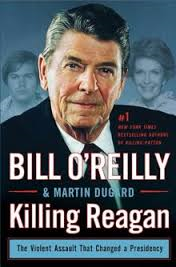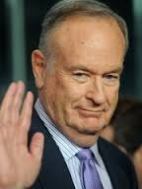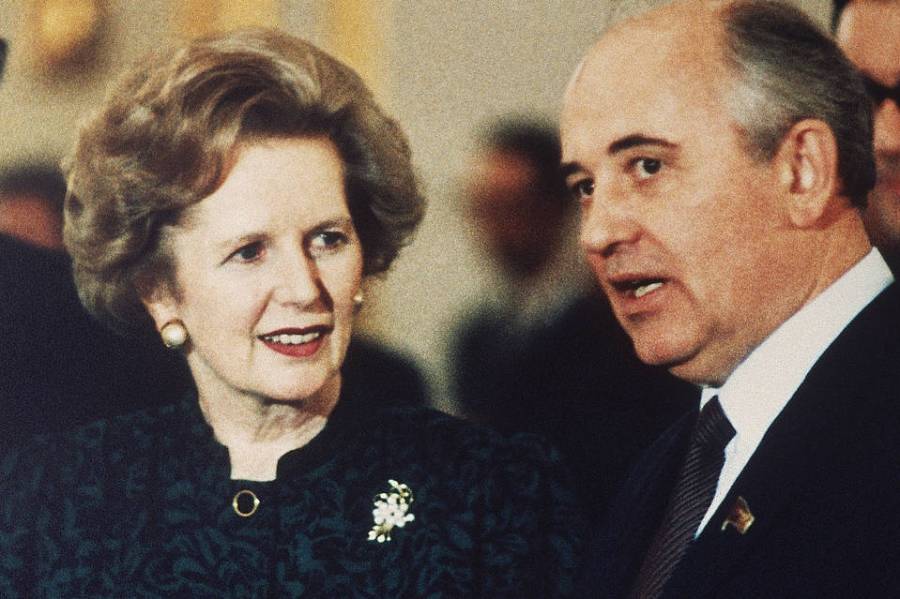I just finished the most recent Bill O’Reilly “killing” book. This one is entitled Killing Reagan: The Violent Assault that Changed a Presidency (New York: Henry Holt , 2015), co-authored with Martin Dugard.
I have read all of these O’Reilly books. They include killing Lincoln, Jesus, Patton, and Kennedy. They are entertaining. I will tell you that I have read things in these books that I have not seen anywhere else. For example, we know that Marilyn Monroe had a thing for the Kennedy brothers, but O’Reilly is the first person I have ever seen that claims JFK spent a full weekend with her. I don’t like him. Go to Wikipedia.com and look at all the disputed claims – some of the same things that Dan Rather was fired for at CBS. Of course, O’Reilly works for FoxNews, not CBS, and I guess you can get away with more by not being on a major network.
 I was only 35, but already a former college professor when the Berlin Wall fell, communism deteriorated and the Cold War ended. For most of my years, Ronald Reagan is credited with winning the cold war, the most stunning force being his public call to Soviet Leader Mikhail Gorbachev to “tear down this wall” in a speech on June 12, 1987 in Berlin. When it went down, I’ve never seen such a “yawn” and uncelebrated response than the one that the first President George Bush offered. Former presidential candidate Patrick Buchanan is likely the biggest proponent of the Reagan influence. It is well documented that Reagan stood up to Gorbachev, as no American president had ever done with a Soviet leader, even walking out of a summit when negotiated terms were not to his liking.
I was only 35, but already a former college professor when the Berlin Wall fell, communism deteriorated and the Cold War ended. For most of my years, Ronald Reagan is credited with winning the cold war, the most stunning force being his public call to Soviet Leader Mikhail Gorbachev to “tear down this wall” in a speech on June 12, 1987 in Berlin. When it went down, I’ve never seen such a “yawn” and uncelebrated response than the one that the first President George Bush offered. Former presidential candidate Patrick Buchanan is likely the biggest proponent of the Reagan influence. It is well documented that Reagan stood up to Gorbachev, as no American president had ever done with a Soviet leader, even walking out of a summit when negotiated terms were not to his liking.
O’Reilly is clear that the friendship between Reagan and former British Prime Minister Margaret Thatcher was an important factor in ending the cold war. But, a new book suggests that it was Thatcher, not Reagan, who was the most influential. 
Charles Moore’s book, Margaret Thatcher: At Her Zenith – In London, Washington and Moscow (Knopf, 2016) debuts in bookstores on January 5. Moore argues that it was Thatcher who pushed Reagan to recognize Gorbachev’s strengths and limitations. In today’s Wall Street Journal, Moore writes that “Thatcher risked letting Mr. Gorbachev drive a wedge between her and Reagan” (p. C3). Without Thatcher’s work on Gorbachev, “interpreting Reagan to her Soviet visitor,” we may not have seen the same ending to the Cold War. The title of his essay today is “How Thatcher Won the Cold War.”

This book will be an important historical revelation to allow us to compare just how influential different leaders were in ending the Cold War. We need to learn whether Thatcher was more than an intermediary between Reagan and Gorbachev. It appears that this new book says just that.
